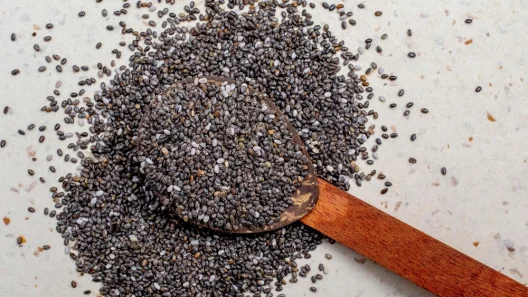Probiotics have transitioned from a niche health concept to a mainstream wellness priority in 2025, with growing scientific recognition of their far-reaching impacts on human health. These beneficial microorganisms, often called “friendly bacteria,” play crucial roles not only in digestion but in immune function, mental health, skin condition, and overall wellbeing . The global interest in probiotics reflects a broader shift toward microbiome-aware healthcare, where supporting our internal microbial ecosystem is recognized as fundamental to health maintenance and disease prevention . At MyGreenRemedy, we believe in translating complex science into practical guidance, helping you navigate the expanding world of probiotics with evidence-based information rather than marketing hype. This comprehensive guide explores what probiotics are, how they work, which strains show the strongest scientific support, and how to select quality products that deliver genuine benefits for your gut health and beyond.
What Are Probiotics?
Defining Probiotics and Their Mechanisms
The World Health Organization defines probiotics as “live microorganisms that, when administered in adequate amounts, confer a health benefit on the host” . These beneficial bacteria primarily inhabit the gastrointestinal tract, where they form part of a complex ecosystem known as the gut microbiome – a community of trillions of microorganisms that influence numerous aspects of our physiology . Probiotics work through multiple mechanisms to support health:
- Competitive exclusion: Outcompeting harmful pathogens for resources and attachment sites in the gut
- Strengthening gut barrier function: Enhancing the integrity of the intestinal lining to prevent “leaky gut”
- Modulating immune responses: Interacting with gut-associated lymphoid tissue to promote balanced immunity
- Producing beneficial compounds: Generating short-chain fatty acids, vitamins, and other metabolites that support health
- Influencing neurotransmitter production: Affecting the production of chemical messengers that impact mood and cognition
Probiotics, Prebiotics, and Postbiotics: Understanding the Terminology
As probiotic science has advanced, related terms have emerged that are important to understand:
- Probiotics: Live microorganisms that provide health benefits when consumed in adequate amounts
- Prebiotics: Non-digestible fibers that serve as food for beneficial gut bacteria, promoting their growth and activity
- Postbiotics: Bioactive compounds produced by probiotic bacteria during fermentation, including short-chain fatty acids, enzymes, and peptides that provide health benefits
- Synbiotics: Products that combine both probiotics and prebiotics to synergistically enhance probiotic survival and efficacy
This evolving vocabulary reflects our deepening understanding of how gut microbes and their metabolic products influence our health.
The Science Behind Probiotics and Gut Health
Digestive Health Support
The most well-established benefits of probiotics relate to digestive health. Numerous systematic reviews and meta-analyses have found specific probiotic strains effective for:
- Irritable bowel syndrome (IBS): Multiple studies show certain probiotics can reduce overall IBS symptoms, particularly bloating, flatulence, and abdominal pain . A 2024 review in the American Journal of Gastroenterology concluded that specific strains (including Bifidobacterium infantis 35624 and certain Lactobacillus strains) demonstrated consistent benefits for IBS symptom management .
- Antibiotic-associated diarrhea: Probiotics, particularly Saccharomyces boulardii and Lactobacillus rhamnosus GG, have shown significant efficacy in preventing and treating diarrhea associated with antibiotic use . A JAMA meta-analysis of 82 randomized trials found probiotics reduced the risk of antibiotic-associated diarrhea by 51% .
- Infectious diarrhea: Several probiotic strains have demonstrated ability to reduce the duration and severity of acute infectious diarrhea in both children and adults .
- Constipation: Certain Bifidobacterium and Lactobacillus strains appear to improve stool frequency and consistency in people with functional constipation .
Immune System Regulation
The gut houses approximately 70% of the body’s immune cells, making it a crucial site for immune education and regulation . Probiotics influence immune function through multiple pathways:
- Enhancing barrier function: Strengthening the intestinal lining to prevent inappropriate immune activation
- Modulating inflammatory responses: Reducing production of pro-inflammatory cytokines while promoting anti-inflammatory mediators
- Supporting immunoglobulin production: Enhancing secretion of IgA, an antibody that protects mucosal surfaces
- Training immune cells: Interacting with dendritic cells and other immune sentinels to promote appropriate responses
Clinical studies have found that specific probiotic strains can reduce the incidence and duration of upper respiratory infections and may enhance antibody responses to vaccinations .
Mental Health and the Gut-Brain Axis
The gut-brain axis – the bidirectional communication system between the gastrointestinal tract and the central nervous system, represents one of the most exciting areas of probiotic research. Gut microbes produce and influence numerous neurotransmitters and neuroactive compounds, including serotonin, GABA, and dopamine, which affect mood, cognition, and behavior . Emerging evidence suggests that:
- Specific probiotic strains (often called “psychobiotics”) may help reduce symptoms of anxiety and depression
- Probiotics might influence stress resilience by modulating the hypothalamic-pituitary-adrenal (HPA) axis
- Gut microbiome composition appears linked to neurodevelopmental conditions like autism spectrum disorder
While promising, this research is still emerging, and more studies are needed to identify which strains are most effective for specific mental health concerns.
Skin Health
The gut-skin axis represents another fascinating connection, with growing evidence that gut microbiome composition influences skin health through immune modulation, systemic inflammation, and potentially direct microbial interactions . Research suggests probiotics may benefit:
- Atopic dermatitis: Several studies show specific probiotic strains can reduce the severity of eczema, particularly in children
- Acne: Early research suggests certain probiotics might help reduce acne severity, possibly by modulating inflammation and competing with acne-related bacteria
- Skin aging: Preliminary evidence indicates probiotics might improve skin hydration and barrier function
Table: Evidence Strength for Probiotic Health Benefits
| Health Area | Evidence Strength | Most Supported Strains | Notes |
| Antibiotic-associated diarrhea | Strong | Saccharomyces boulardii, Lactobacillus rhamnosus GG | Prevention more established than treatment |
| Irritable bowel syndrome | Moderate to Strong | Bifidobacterium infantis 35624, Lactobacillus plantarum, multi-strain blends | Strain-specific effects; benefits modest but significant |
| Immune support | Moderate | Lactobacillus rhamnosus GG, Bifidobacterium animalis, Lactobacillus casei | Effects most pronounced in those with compromised immunity |
| Mental health | Emerging | Lactobacillus helveticus, Bifidobacterium longum | Promising but need more human trials |
| Skin health | Emerging | Lactobacillus rhamnosus, Lactobacillus reuteri | Strongest evidence for pediatric eczema |
Best Probiotic Strains for Gut Health
Lactobacillus rhamnosus GG
Lactobacillus rhamnosus GG (often abbreviated LGG) is one of the most extensively studied probiotic strains, with research spanning over three decades. Originally isolated from human intestinal flora in 1985, LGG has demonstrated particular efficacy for:
- Preventing and treating diarrhea: Multiple studies show LGG reduces the risk of antibiotic-associated diarrhea and acute infectious diarrhea
- Reducing eczema risk: Maternal supplementation during pregnancy and lactation, followed by infant supplementation, may reduce the risk of atopic eczema in children with family history
- General gut health: LGG adheres well to intestinal mucosa and may help maintain gut barrier function
Typical dosage: 1-10 billion CFUs daily for maintenance, up to 20 billion CFUs for specific conditions under guidance
Bifidobacterium longum
Bifidobacterium longum is among the most abundant beneficial bacteria in the human colon, particularly in healthy individuals. Research suggests it offers several benefits:
- Digestive support: May help alleviate symptoms of IBS and improve regularity
- Inflammation modulation: Appears to reduce markers of systemic inflammation
- Mental health support: Early research suggests B. longum may help reduce perceived stress and improve emotional resilience
- Lactose digestion: Produces lactase enzyme that may help with lactose intolerance
Typical dosage: 1-10 billion CFUs daily
Saccharomyces boulardii
Unique among commonly used probiotics, Saccharomyces boulardii is a beneficial yeast rather than a bacterium. This distinction gives it several advantages:
- Antibiotic resistance: As a yeast, it isn’t killed by antibiotics, making it particularly useful during antibiotic treatment
- Diarrhea prevention: Strong evidence for preventing antibiotic-associated diarrhea and traveler’s diarrhea
- Clostridium difficile support: May help prevent recurrence of C. difficile infection
- Heat stability: More resistant to temperature fluctuations than bacterial probiotics
Typical dosage: 5-10 billion CFUs daily during antibiotic treatment or for diarrhea prevention
Lactobacillus acidophilus
Lactobacillus acidophilus is one of the most well-known probiotic species, naturally found in the human gut, mouth, and vagina. Research supports its use for:
- Lactose digestion: Helps break down lactose, potentially reducing symptoms of lactose intolerance
- Vaginal health: May help prevent and treat bacterial vaginosis and urinary tract infections
- Immune support: May enhance immune responses and reduce respiratory infection frequency
- Cholesterol management: Some studies show modest cholesterol-lowering effects
Typical dosage: 1-10 billion CFUs daily
Multi-Strain Blends
Multi-strain probiotic formulations have gained popularity based on the concept that different strains may work synergistically through complementary mechanisms. The theoretical advantages include:
- Broader range of benefits: Different strains may target various health concerns
- Enhanced colonization: Some strains may create a more favorable environment for others
- Resilience to environmental challenges: Diverse communities may be more stable
Research comparing single-strain versus multi-strain probiotics shows mixed results, with some studies finding superior effects for multi-strain formulations and others showing no significant difference . The specific combination of strains appears more important than simply the number of strains.
How to Choose the Right Probiotic Supplement
Key Selection Factors
Navigating the probiotic supplement market requires attention to several important factors:
- CFU count: Colony-forming units indicate the number of viable microorganisms. Higher isn’t always better, typically 1-20 billion CFUs daily is sufficient for maintenance, while specific conditions may require higher doses
- Strain specificity: Look for products that specify the exact strains (genus, species, and strain designation) rather than vague descriptions
- Delivery system: Quality products use protection technologies (enteric coating, microencapsulation) to ensure survival through stomach acid
- Evidence backing: Prefer strains with human clinical research supporting their benefits for your specific concerns
- Expiration date: Ensure the product specifies viability through the expiration date, not just at time of manufacture
Storage Considerations
Probiotic stability varies significantly between products:
- Refrigeration required: Some delicate strains require refrigeration to maintain potency
- Shelf-stable: Other products use stabilization technologies that allow room-temperature storage
- Travel considerations: Shelf-stable products may be more convenient for travel or inconsistent refrigeration access
Regardless of storage claims, always store probiotics away from heat, moisture, and direct sunlight.
Safety and Professional Guidance
While generally safe for healthy individuals, probiotics may not be appropriate for everyone. Consult a healthcare provider before starting probiotics if you:
- Have a compromised immune system (from medical conditions or immunosuppressant medications)
- Have short bowel syndrome or recent bowel surgery
- Are critically ill or hospitalized
- Are pregnant or breastfeeding (though many probiotics are considered safe, professional guidance is recommended)
- Have central venous catheters (due to rare but serious risk of fungal sepsis from probiotic yeasts)
Food Sources of Probiotics
Traditional Fermented Foods
Many traditional foods naturally contain beneficial bacteria:
- Yogurt: Look for “live and active cultures” and minimal added sugars
- Kefir: A fermented milk drink that typically contains more diverse strains than yogurt
- Sauerkraut: Fermented cabbage; choose unpasteurized, refrigerated varieties
- Kimchi: Korean fermented vegetables, typically cabbage and radish with seasonings
- Miso: Fermented soybean paste used in Japanese cooking
- Kombucha: Fermented tea beverage; be mindful of sugar content
- Tempeh: Fermented soybean product with firm texture
Food vs. Supplement Considerations
Both fermented foods and supplements can contribute beneficial bacteria, but they offer different advantages:
- Diversity: Fermented foods may provide a wider array of microbial strains than supplements
- Additional nutrients: Fermented foods often contain other beneficial compounds (vitamins, enzymes, postbiotics)
- Dosage consistency: Supplements provide standardized, reliable doses of specific strains
- Targeted benefits: Supplements allow selection of strains with evidence for specific health concerns
A combined approach incorporating both fermented foods and targeted supplements may offer the most comprehensive support.
Learn more: Read our Complete Guide to Dietary Supplements.
FAQs
How long does it take for probiotics to work?
The timeframe for noticing benefits varies depending on the individual and the specific health concern. Some people notice digestive improvements within a few days to weeks, while other benefits (like immune or skin support) may take several months of consistent use . For maintaining a healthy microbiome, ongoing daily intake is typically recommended rather than short-term courses.
Are probiotics safe for children?
Many probiotics are considered safe for children, with certain strains having specific research in pediatric populations . However, dosage should be adjusted based on age and weight, and it’s best to choose products specifically formulated for children. Always consult a pediatrician before giving probiotics to infants or children with medical conditions.
Can probiotics cause side effects?
Most people tolerate probiotics well, but some may experience temporary gas, bloating, or changes in bowel habits during the first few days as their microbiome adjusts. These symptoms typically resolve as the body adapts. Starting with a lower dose and gradually increasing can help minimize adjustment effects.
Should probiotics be taken daily?
For ongoing benefits, daily intake is generally recommended as most probiotic strains do not permanently colonize the gut but rather provide benefits while being consumed. Consistency is key to maintaining desired effects, though the specific timing (with food, before bed, etc.) may vary based on the product and individual preference.
Conclusion
Probiotics represent a promising approach to supporting gut health and overall wellbeing, with a growing body of scientific evidence supporting their benefits for specific conditions. The most well-established applications include preventing antibiotic-associated diarrhea, managing IBS symptoms, and supporting immune function, while emerging research suggests potential benefits for mental health, skin conditions, and beyond . When selecting probiotics, strain specificity, evidence base, and product quality are more important than marketing claims or extremely high CFU counts.
A holistic approach to gut health combines targeted probiotic supplementation with prebiotic-rich foods, diverse plant-based diet, and other lifestyle factors that support microbial diversity. For those interested in complementary approaches to digestive wellness, we explore traditional options in our article on Ayurvedic Herbs for Gut Health and modern strategies in our guide to Top Supplements for Immune Support in 2025.
Remember: While generally safe, probiotics are not appropriate for everyone, and their effects can vary significantly between individuals. Consult with a healthcare provider before starting new supplements, especially if you have underlying health conditions or take medications.










